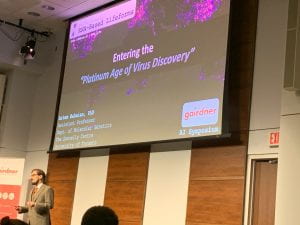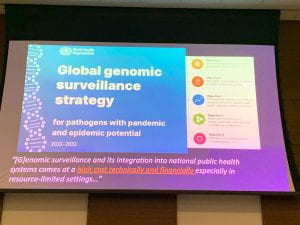I attended the conference: the Future of AI in science & medicine
I would like to share some of my notes.
1- Cheryl Arrowsmith
She uses AlphaFold in her research into chemical probes to revolutionise science and biology medicine.
They can be found on X using #Target2035
There is a high need for collaboration and data sharing in the field. They also need people to test the molecules.
They also participate in the CACHE challenge for critical assessment.
The goal is to lower the cost of making new drugs.
2- Bo Wang
Developed scGPT : toward building a foundation model for single-cell omics.
We develop integrative and interpretable machine learning algorithms that can help clinicians with predictive models and decision support to tailor patients’ care to their unique clinical and genomic traits.
Data is from the Human Cell Atlas at JCoolScience
They have organ specific Foundation Models.
To develop those tools, collaboration is key between computer scientist and biologists.
3- Doina Precup
Their AI is confined to simulations. The AI train on simulation. They need to train in the population and it is hard to do. They need more data.
4 – Artem Babain
His website http://RNNlab.ca is not available online. But his X handle is: @RNA_life.
He is one of the 2023 winners of the Gardner Prize. He was able to predict where the SARS-CoV-2 virus was coming from. The database: Sequence Read Archive (or ENA) is available to everyone. The volume of data is growing exponentially.
He said if there is one thing we should remember from this presentation is that they are the modern library of Alexandria for genetics.
They have a really large amount of data. They write algorithms to process such a large volume of data.
5- Elaine O Nsoesie, Ph. D.
She is able to predict obesity from space.
6- Demis Assabis and John Jumper
Links and #hashtag to research further:
#unfolded
He created tools to aid scientists. Here is my question:
How to support the next generation.
It depends on age, of course. AI is multidisciplinary work. We need to work and talk with experts in other domains. We need to learn WHEN to apply AI.
It is currently the easiest time to get involved.
——-
The Gairdner foundation thanks its supporters.












